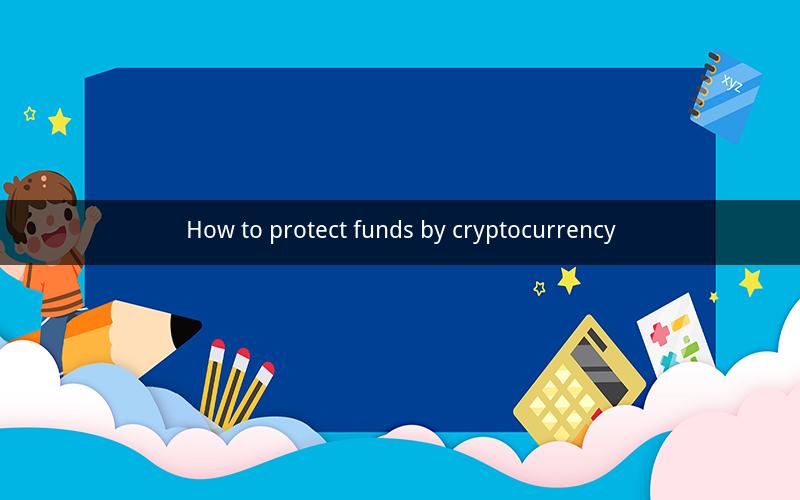
Protecting Funds with Cryptocurrency: A Comprehensive Guide
Table of Contents
1. Introduction to Cryptocurrency
2. Understanding the Risks
3. Secure Wallets: Your First Line of Defense
4. Multi-Factor Authentication: Adding an Extra Layer
5. Cold Storage: Keeping Your Funds Safe
6. Regular Backups: A Must-Have Practice
7. Stay Informed and Educated
8. Using Trusted Exchanges and Brokers
9. Avoiding Scams and Phishing Attempts
10. Conclusion
1. Introduction to Cryptocurrency
Cryptocurrency has emerged as a revolutionary technology, offering a decentralized and secure way to store and transfer value. It operates on a blockchain, a distributed ledger technology that ensures transparency and immutability. As the popularity of cryptocurrencies continues to rise, so does the need for effective strategies to protect your funds.
2. Understanding the Risks
Before diving into the world of cryptocurrency, it's crucial to be aware of the risks involved. These include market volatility, regulatory changes, security breaches, and the potential for loss due to technological failures. By understanding these risks, you can better prepare yourself to protect your investments.
3. Secure Wallets: Your First Line of Defense
The first step in protecting your cryptocurrency is to use a secure wallet. There are various types of wallets available, including software wallets, hardware wallets, and paper wallets. Each has its own set of advantages and disadvantages, so it's important to choose the one that best suits your needs.
Software wallets are convenient and easy to use, but they are more susceptible to hacking and malware. Hardware wallets, on the other hand, provide a higher level of security by storing your private keys offline. Paper wallets are a cost-effective solution, but they can be easily damaged or lost.
4. Multi-Factor Authentication: Adding an Extra Layer
To further enhance the security of your cryptocurrency, consider enabling multi-factor authentication (MFA) on your wallet and exchange accounts. MFA requires you to provide two or more forms of verification, such as a password and a unique code sent to your phone, before accessing your account. This adds an extra layer of protection against unauthorized access.
5. Cold Storage: Keeping Your Funds Safe
Cold storage is a method of storing your cryptocurrency offline, away from the internet. This makes it nearly impossible for hackers to gain access to your funds. There are several cold storage options available, including hardware wallets, paper wallets, and cold storage vaults.
6. Regular Backups: A Must-Have Practice
Regularly backing up your cryptocurrency is essential, especially if you are using a software wallet. Backups can help you recover your funds in case of a hardware failure, loss, or theft. Make sure to store your backups in a secure location, such as a safe deposit box or a fireproof safe.
7. Stay Informed and Educated
The cryptocurrency market is constantly evolving, with new technologies and security threats emerging regularly. To stay ahead of the curve, it's important to stay informed and educated about the latest trends and best practices in cryptocurrency security.
8. Using Trusted Exchanges and Brokers
When trading or investing in cryptocurrency, it's crucial to use trusted and regulated exchanges and brokers. These platforms have strict security measures in place to protect your funds and comply with regulatory requirements. Be wary of unverified or unregulated platforms, as they may pose a higher risk of fraud and theft.
9. Avoiding Scams and Phishing Attempts
Scams and phishing attempts are prevalent in the cryptocurrency space. Be cautious of unsolicited messages, offers that seem too good to be true, and requests for your private keys or other sensitive information. Always verify the legitimacy of the source before taking any action.
10. Conclusion
Protecting your cryptocurrency funds requires a combination of knowledge, caution, and proactive measures. By using secure wallets, enabling multi-factor authentication, employing cold storage, and staying informed, you can significantly reduce the risk of losing your investments. Remember, the key to successful cryptocurrency investment is to prioritize security and remain vigilant.
FAQs
1. What is the difference between a software wallet and a hardware wallet?
2. How can I tell if a cryptocurrency exchange is trustworthy?
3. What are the common types of cryptocurrency scams?
4. Why is it important to keep my private keys secure?
5. How often should I back up my cryptocurrency wallet?
6. Can I use the same wallet for storing different types of cryptocurrency?
7. What should I do if I suspect my cryptocurrency wallet has been compromised?
8. Are there any legal risks associated with owning cryptocurrency?
9. How can I protect myself from phishing attempts related to cryptocurrency?
10. Can I lose my cryptocurrency if my computer is hacked?